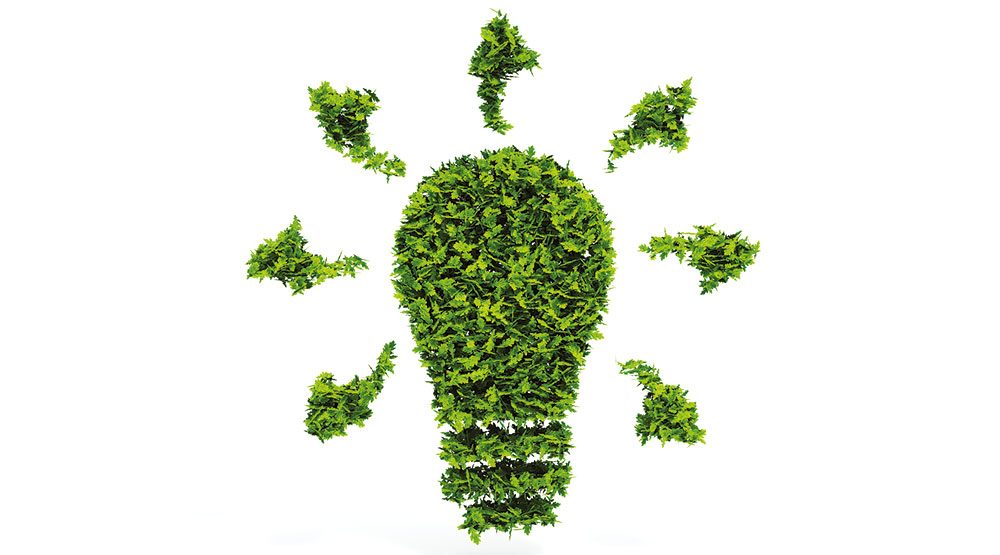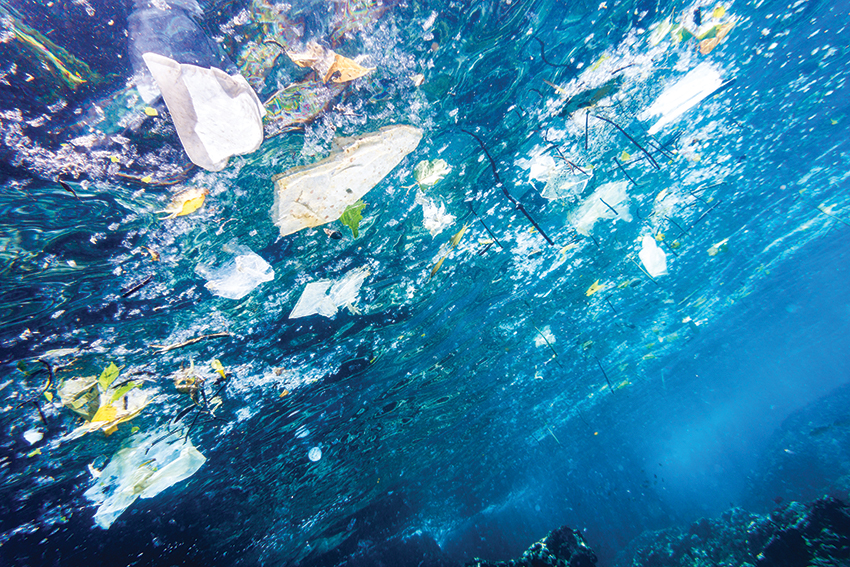
As he reflects on the sustainability journey of manufacturing giant 3M, Supeap Leng urges other companies operating in the cleaning and hygiene space to embrace a new way of thinking.
Just because floors have always been cleaned a certain way, it does not mean that it is the only way. Just because specific products have dominated the market, it does not mean that more eco-friendly options are unviable.
“What we are doing is looking at products, processes and the market itself to see how we can encourage a change in mindset, especially in the cleaning industry, where sometimes people are stuck in a routine and they don’t really want to change it,” says Leng, a manager in the commercial solutions division at 3M Australia.
A case in point is the old approach to stripping, sealing and maintaining hard floors. The process often results in excess chemicals being washed down drains and gas-powered burnishers creating air and noise pollution. In response, 3M has developed more sustainable floorcare systems that cut down on labour, rely more on water rather than harsh chemicals, and limit the need to burnish.
“The people using the machines are not exposed to the gasses in the air and the loud noise – and facilities don’t have to strip and seal so much,” Leng says. “But there’s no point in making the process greener if it cannot deliver. With this process it can produce the same performance as traditional methods, as well as a sustainability benefit.”
Helping people and the planet
Sustainability is much more than a buzzword in the cleaning sector – by adopting sustainable and eco-friendly practices, companies can help protect the planet, safeguard human health and wellbeing, and create a thriving business.
Such a sentiment is well understood at Accord Australasia, the national industry association representing manufacturers and suppliers of hygiene, personal care and specialty products.
Executive director Bronwyn Capanna agrees that all players in the cleaning and hygiene chain must be prepared to challenge the status quo if they hope to promote sustainability.
Accord did just that a decade ago with the launch of the organisation’s Recognised ecolabel in the commercial cleaning sector. It has provided a third-party assessed accreditation scheme to identify fit-for-purpose and environmentally preferable commercial cleaning products.
“This was at a time when members were telling us that there were very few robust, science-based ecolabels that were suitable for differentiating their environmentally preferable commercial cleaning products,” Capanna says.
“Since that time there has been an expanded offer of other accreditation schemes, plus products themselves are increasingly formulated with social and environmental considerations in view. So, some important improvements in the market can in part be attributed to Recognised.”
The association’s FitForFood initiative is another success story, providing an online information resource for determining the suitability of commercial cleaning and sanitising products for food contact applications. While she is proud of such achievements, Capanna says there is no room for complacency. “It isn’t good enough to simply be satisfied with the achievements of the past. Continuous improvement is essential, especially in an area like sustainability.”
Vacuum cleaner manufacturer SEBO is also pursuing sustainability initiatives, including ensuring plastics are recycled into new components. The factory is also self-sustaining with regard to electricity use and even makes contributions to the national grid when supply exceeds demand.
Kristine Collins, product manager for SEBO Australia, says that by adopting the right design and technology – and guiding customers on the right vacuum for the right floor type – the company’s products contribute to a range of sustainability goals. This includes increasing the lifespan of flooring, reducing premature landfill, improving indoor air quality and benefiting the workforce by maintaining a good level of productivity and attendance.
Collins says SEBO is also encouraging a culture of sustainability among employees, whether they are on the job or at home.
“We as individuals have our own role in society to contribute towards sustainability, whether that is at home turning off the tap while brushing our teeth, at work using recycled paper, or down at the local park picking up someone else’s trash and putting it in the bin,” Collins says.
“Staff are encouraged to have a positive environmental impact across all areas at work, even including the collection of food scraps for composting.”
Made to measure
A key to successful sustainability programs is committing to specific goals and then measuring progress against them. Globally, 3M has made significant sustainability pledges in recent years, vowing to:
- achieve zero landfill status at more than 30 per cent of its manufacturing sites by 2025
- reduce manufacturing waste by an additional 10 per cent, indexed to sales, by 2025
- cut dependence on virgin fossil-based plastic by 125 million pounds (about 56.7 million kilograms) by the end of 2025
- reduce global water usage by 25 per cent by 2030, indexed to sales.
Leng says publishing regular global impact reports has been crucial to 3M’s commitment to measuring and meeting its sustainability goals.
“One thing we’ve been proud about is being really vocal and transparent on what we do,” he says.
“A lot of companies will talk about their sustainability values and commitments, but when you dig deeper there’s not much depth to it. At 3M, we’re not just talking and greenwashing.”
The reality is that entities which are guilty of greenwashing are increasingly likely be caught out and punished. In March, the Australian Competition and Consumer Commission announced that it is investigating a number of businesses for potential greenwashing.
This follows an internet sweep which found that 57 per cent of the businesses reviewed had made “concerning claims” about their environmental credentials.
The cosmetic, clothing and footwear and food and drink sectors were found to have the highest proportion of concerning claims among the industries targeted in the operation. No sector can be unworried, though.
Europe is also targeting greenwashing, with reports indicating that companies will have 10 days to justify green claims about their products or face “effective, proportionate and dissuasive” penalties under a draft European Union crackdown on greenwashing.
This follows inflated claims by companies about their products’ environmental performance and is a pointe to what is likely to follow in other international jurisdictions.
No time to waste
One company that is seeking to make a difference through its sustainability initiatives is Cleanstar/XPOWER, a wholesale distributor of cleaning equipment and products.
Through the Bonnie Bio brand, the business sells a range of compostable products such as garbage bags, disposable gloves and packaging.
“This is a long-term initiative and our industry needs to work on composting programs and put systems in place to reduce waste and reduce the harmful effects on our environment,” says Cleanstar/XPOWER director Lisa Michalson.
She says a growing number of cleaning companies are focusing on waste reduction and the use of environmentally friendly products. With regard to compostable products, in particular, they employ a range of strategies:
- Prioritising the use of products that carry compostable certifications (these certifications ensure that the products meet specific compostability standards and break down into natural elements within a certain timeframe)
- Conducting waste audits to evaluate the composition of their waste streams (this helps identify the amount of compostable waste that is generated, along with tracking improvements over time)
- Investing in on-site composting infrastructure, or partnering with composting facilities to ensure the proper disposal of compostable products (they can measure their progress by tracking the amount of compostable waste diverted to composting facilities and the volume of high-quality compost generated)
- Engaging with their suppliers to encourage the use of compostable packaging and materials (they may set specific targets for the percentage of compostable products in their supply chain and track the progress towards achieving those targets)
- Educating their customers about the benefits of compostable products and encouraging their use.
“By employing these measurement strategies, cleaning companies can track their progress in using compostable products and make informed decisions to further enhance their sustainability efforts,” Michalson says.
To ensure that sustainability initiatives are meaningful and being met within Accord, Capanna says the association stays true to the language of its core values statement, including through terms such as “collaborative”, “inclusive” and “solutions-focused”, in addition to “science- and evidence-based”. “These values underpin all Accord’s work and communications,” she says.
Such rigour has paid off with initiatives such as BeadRecede, for example – a campaign to phase out microbeads from personal care and cosmetics products, including commercial handwashes, because of their negative impact on the marine environment. The campaign has been pronounced as successful by the Department of Climate Change, Energy, the Environment and Water (DCCEEW).
Accord also strongly encourages members to have evidence to back up any sustainability claims that they are making.
“One way to do this is through external verification and accreditation systems, but also fundamental is the need for companies to measure their impacts in a more tangible manner,” Capanna says.
For Accord, key priorities as it assists members in the coming year will include responding to climate change and targeting plastic and packaging waste.
“We are undertaking several activities to assist members in overcoming barriers, developing solutions and progressing their action on these important global challenges,” Capanna says.
Plan for success
With an eye to the future, sustainability planning around greater energy efficiency, better indoor air quality and a focus on environmental, social and governance (ESG) guidelines are among the many areas that cleaning companies and other businesses should be prioritising.
Michalson says the cleaning industry will inevitably face various sustainability challenges and opportunities in the next 12 months and beyond. On the plus side, she expects increasing consumer demand for sustainable products.
“By actively promoting and highlighting the environmental benefits of compostables and sustainable packaging, for example, companies can tap into the growing market of conscious consumers who prioritise eco-friendly options,” Michalson says.
“And addressing challenges and seizing the opportunities, the cleaning and hygiene industry can drive significant progress in sustainability during the next 12 months.”
As the industry responds to sustainability pressures, Leng is encouraged that in the past two years more customers have been coming to 3M asking for additional information around sustainability specifications or certifications.
“Because when they go up to tender, the brand managers and the brand owner is asking for that now,” he says.
“So, it really starts from the top, and we’re seeing sustainability managers having more of a seat at the corporate table because they’re a key part of the brand’s mission. They have a lot more influence than in the past and that’s a good thing.”
This article first appeared in the July/August issue of INCLEAN magazine
Comment below to have your say on this story.
If you have a news story or tip-off, get in touch at info@incleanmag.com.au
Sign up to INCLEAN’s newsletter.





